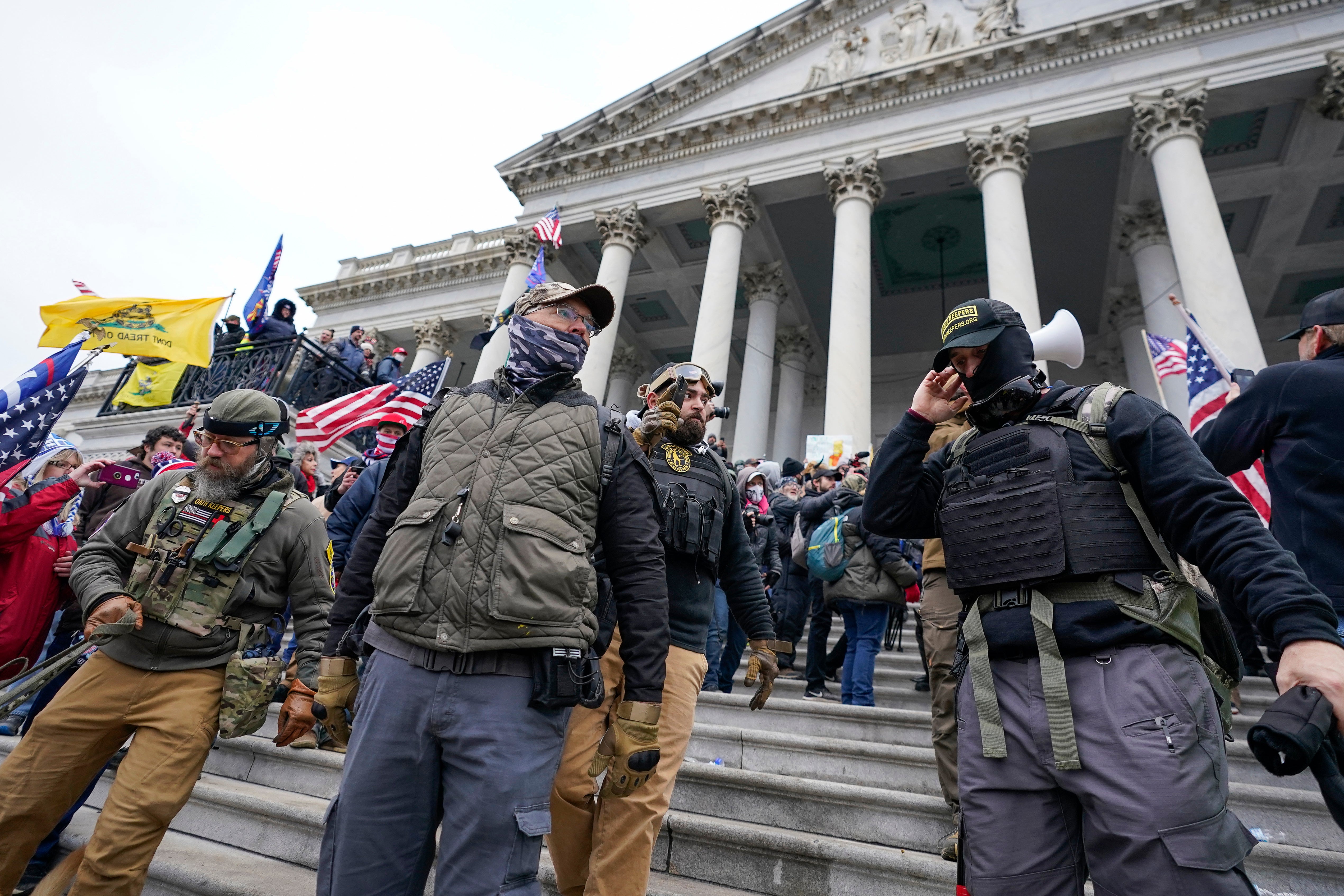The Independent's journalism is supported by our readers. When you purchase through links on our site, we may earn commission.
January 6 is not in the past
The Capitol attack was perhaps the most important chapter of a broader story

It has been two years since a violent mob of thousands, acting at the encouragement of the outgoing president, attacked the US Capitol in an attempt to prevent the certification of an election. In the time since, there have been countless hours of public committee hearings, investigations and revelations, but a crucial question hangs over it all: has anything actually changed?
The prevailing knowledge says probably not. Look a little closer, however, and there are signs that lessons may have been learned.
It has always been the case that democracy requires participation nourishment to thrive, but the extremist tendency that was ushered into the mainstream by Donald Trump, and which showed its ugly face to the world on that day, has made that participation more of an imperative than a duty.
I have often remarked to my American friends how exhausting it must be to be a citizen of the United States today. Lots of countries face political dysfunction — my own, the United Kingdom, being a prime example. The key difference is that the same level of peril does not exist there as it does here.
Here, where a certain former president is leading an increasingly bold charge of anti-democratic forces across the country, Americans simply cannot rest for a single second lest they wake up in an authoritarian nightmare. It is not enough for them to show up every four years and elect a president, they must also be deeply involved in school board elections, vote for their local sheriff; they must show up at the midterms and stand in long lines to hold back the tide.
Elections for secretary of state, a position that oversees the administration of elections, now hold as much importance as governor races due to the presence of anti-democratic candidates in those races. School boards — once largely an administrative position — have become a target of extremists and culture warriors.
For example, take the seismic shift that was imposed upon the country by the Supreme Court last year when it overturned its own ruling on Roe v Wade, bringing to an end decades of federal constitutional protection of abortion rights — a protection that a large part of the country believed to be settled was erased overnight. A new country was born.
Before January 6, and the election that preceded it, it could be argued that Americans were complacent about the threat posed by those forces. But a shift had taken place that didn’t make itself clear until the most recent midterms.
In the run-up to November’s election, president Joe Biden faced criticism from media pundits, and many in his own party, for focusing too much on democracy in his campaign. In a banner speech against the MAGA movement during the campaign, he warned that they “promote authoritarian leaders and they fan the flames of political violence that are a threat to our personal rights, to our pursuit of justice, to the rule of the law, to the very soul of this country.”
“We are not powerless in the face of these threats. We are not bystanders to this ongoing attack on democracy,” Mr Biden said. “It’s in our power. It’s in our hands — yours and mine — to stop the assault on American democracy.”
CNN lambasted the “head-scratching democracy speech” as polls showed the economy was at the forefront of people’s minds.
Yet, when the results were in, Mr Biden’s instincts proved correct.
The Democrats defied historical precedent by retaining the Senate and narrowly losing the House while in the White House. Election-denying candidates — even those with the backing of Mr Trump — were roundly defeated, and Democrats overperformed in those states where democracy was under threat. Democrats running for secretary of state against Republican election deniers in Arizona and Nevada were the best-performing candidates in the state.
Younger voters broke turnout records, motivated in large part due to the Supreme Court’s reversal of Roe v Wade.
In short, Mr Trump won the election in 2016 thanks in large part to the voters who stayed home in key states. Democratic voters have not made that same mistake since.
In the last two nationwide elections — the 2020 presidential vote and 2022 midterms, when Democrats defied historical precedent twice by defeating an incumbent president and retaining control of the Senate while in the White House, democracy was on the ballot, and democracy was victorious.
It was the latter of those two elections, the one held after Mr Trump refused to concede his loss and sent his supporters to attack the seat of US democracy, that was the most convincing.
While January 6 may not have shifted the needle in a significant way towards Democrats, it was perhaps the most important chapter of a broader story — one that showed Americans the dangers of not showing up in the Trump era.


Join our commenting forum
Join thought-provoking conversations, follow other Independent readers and see their replies